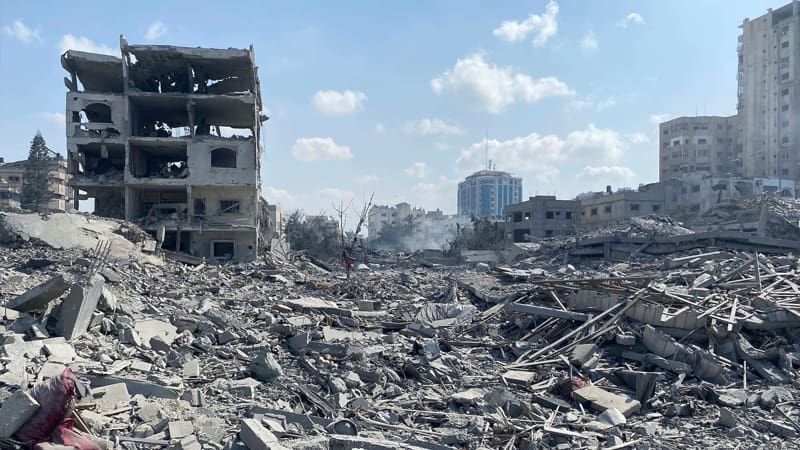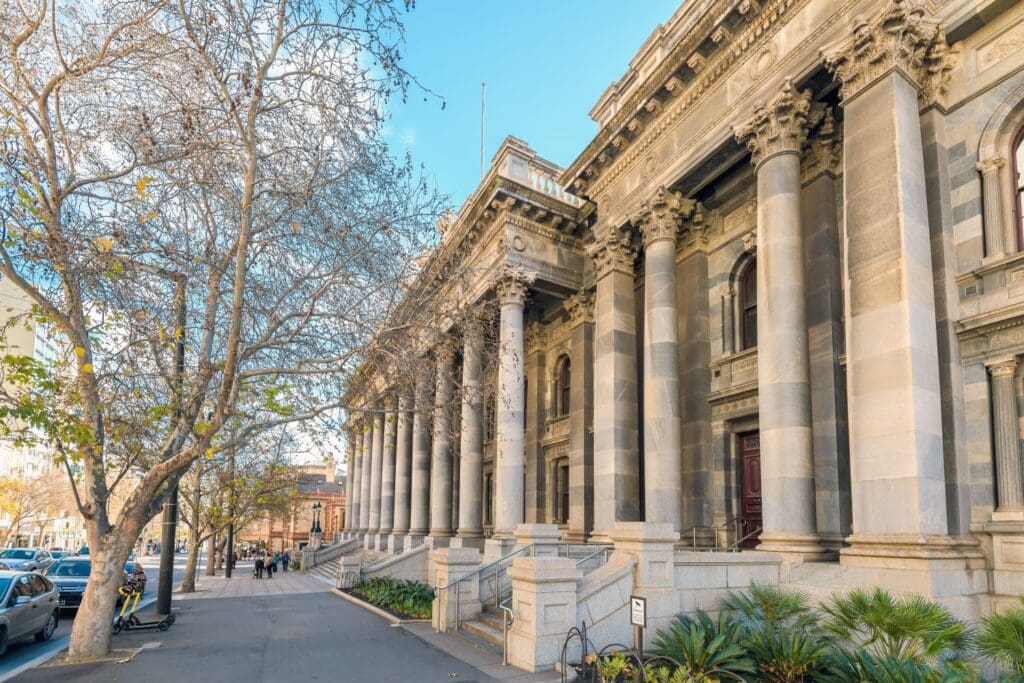Australia’s human rights record sliding backwards ahead of major UN review
Australia’s human rights record is coming under scrutiny, ahead of a major United Nations human rights review, known as the Universal Periodic Review.
A coalition of over 150 Aboriginal and Torres Strait Islander, human rights, legal, disability, refugee, LGBTIQA+ and climate organisations have submitted a report to the United Nations Human Rights Council. The report identifies critical human rights issues where Australia is falling short of its legal obligations and recommends steps Australia must take to improve its human rights record, including:
- An Australian Human Rights Act is the missing piece at the heart of Australia’s laws and policies, which would establish clear minimum human rights protections and mean governments have to consider people’s rights when designing policies and delivering services.
- Ongoing systemic racism against Aboriginal and Torres Strait Islander people is a critical human rights failing, with urgent action needed to raise the age of criminal responsibility to at least 14 to stop 10 year old children growing up in jail, fully incorporate the UN Declaration on the Rights of Indigenous Peoples into Australian laws, establish a Makarrata Commission, and implement self-determined solutions to justice problems.
- Gender-based violence remains a persistent and serious problem, and legal protections must be strengthened for survivors and to stop family violence from happening in the first place.
The report backs up the Human Rights Measurement Index’s 2025 findings that Australia is backsliding across freedom of expression, safety from arbitrary detention and other fundamental human rights.
Caitlin Reiger, CEO at the Human Rights Law Centre said:
“Australia’s human rights record is falling backwards. Thousands of people are having their fundamental human rights breached every day – from not being able to access healthcare, to being restricted from expressing their views, and not able to keep a safe roof over their heads. The Albanese Government must take urgent action – including legislating an Australian Human Rights Act – to ensure everyone is treated with dignity, equality and respect.”
Jade Lane, CEO at Change the Record said:
“Australia’s escalating punitive approach to so called youth justice is a clear violation of human rights for our most vulnerable members of society, in particular First Nations Children and those with disabilities. Our children deserve to thrive free from cages and cycles of criminalisation. Australia has long been condemned for inaction on raising the age of criminal responsibility to reflect international standards. the Albanese Government must urgently intervene in this crisis and choose care over cruelty for our kids.”
Cathryn Eatock, Co-Chair of the Indigenous Peoples’ Organisation Australia said:
“Australia is fundamentally failing Aboriginal and Torres Strait Islander people. We are over-represented across every negative indicator. Our children are dying of preventable rheumatic heart disease caused by poverty and overcrowding, with often 20 people per house in remote communities, reflecting abysmal 3rd world conditions. Children as young as 10 are incarcerated funnelling them into later crime, where deaths in custody is a regular occurrence. But these issues aren’t insurmountable. It requires working with our communities, it requires greater self-determination to enable us to meet the needs of our communities. Victoria’s treaty processes have shown the way, to implement UNDRIP, instil self-determination and respectful relations.”
Kerry Staines, CEO at First Nations Advocates Against Family Violence said:
“We participated in the Universal Periodic Review and led the drafting of the section on Women to ensure Aboriginal and Torres Strait Islander voices are heard in global human rights forums. First Nations people’s rights to safety, justice, and self-determination must be recognised, protected, and embedded through lasting structural change. The UPR offers a platform to amplify the voices of our communities and hold the Australian Government accountable for unmet commitments.”
Background
The Universal Periodic Review (UPR) is a process of the UN Human Rights Council which reviews the human rights records of all 193 nations that are members of the United Nations every four years.
This is the fourth time scrutinising Australia’s human rights record and recommending reform. The last review took place in 2020. The UPR will examine the extent to which Australia is complying with its international human rights obligations under the UN Charter, Universal Declaration of Human Rights, international treaties and other commitments.
It is an opportunity for the Australian Government to show global leadership by committing to improve human rights and upholding international standards at home. However, non-government organisations have persistently criticised the government’s response which in 2020 declined most of the recommendations. The Human Rights Law Centre, Kingsford Legal Centre, Indigenous People’s Organisation-Australia, and Community Legal Centres Australia coordinated the NGO coalition which prepared the detailed report.
The NGO report was endorsed by over 150 Australian NGOs. Other significant human rights issues raised in the report include offshore processing and mandatory immigration detention of people seeking asylum, failure to prevent human rights harms caused by climate change, segregation of people with disabilities in education, housing, and employment, failing to address housing affordability and homelessness and more.
Media Enquiries
Chandi Bates
Media and Communications Manager

INCLO members stand in solidarity with Al-Haq against US sanctions and call for immediate reversal of decision
The International Network of Civil Liberties Organisations, including the Human Rights Law Centre stands in solidarity with Al-Haq, a Palestinian organisation of human right defenders which has been sanctioned by the US Government.
Read more
Statement: Australia’s support for Israel’s ongoing illegal occupation and blockade of humanitarian aid to Gaza must end
The Australian Government is obligated under international law to do everything in its power to bring an end to Israel’s ongoing illegal occupation and blocking of humanitarian aid.
Read more
Malinauskas Government must take historic opportunity and adopt Human Rights Act after inquiry recommendation
The Human Rights Law Centre has congratulated the South Australian parliamentary inquiry recommendation for a South Australian Human Rights Act.
Read more



